7 Soothing Foot Bath Recipes for Your Dog’s Itchy Paws
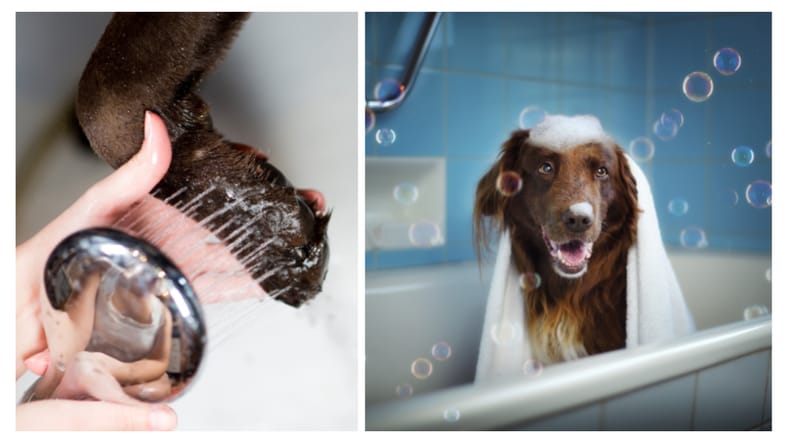
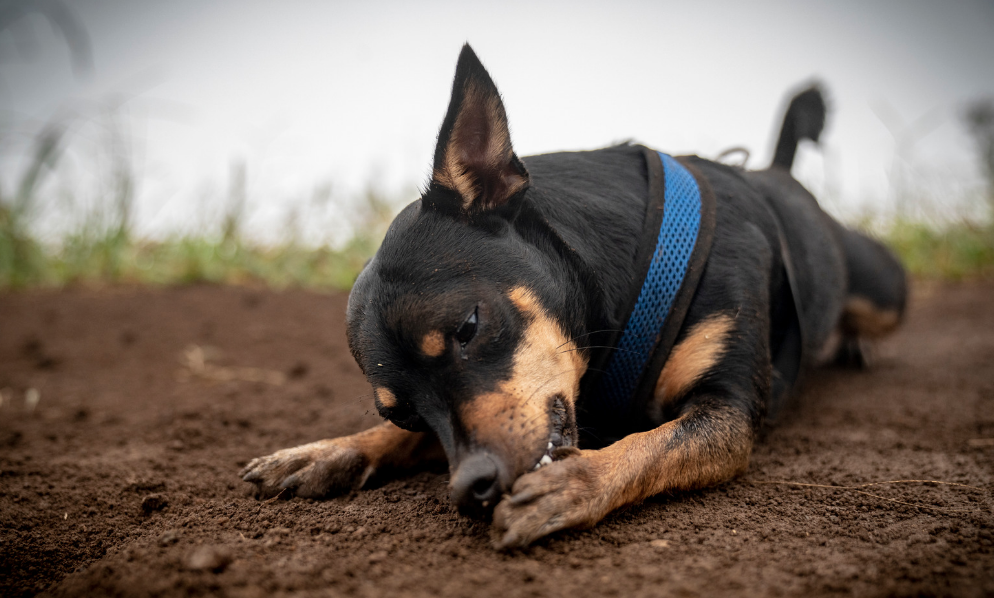
If your dog is one of those who is constantly licking or chewing at her feet, you know the distress that you feel when none of the medications prescribed by your vet seem to work. You’ve tried a grain-free diet and use baby wipes on her feet whenever she comes in the house from outside, but the biting and itching continues. If you want to try some organic, all-natural anti-itch remedies, we have listed some doggy foot bath recipes below that use tried and true herbs and organics to heal irritated skin and sooth inflamed tissue. We also throw out an easy alternative for those of you who are time-strapped.
Keep a bucket next to the front door to use after walks, fill the bathtub with warm water and the ingredients, or use a new kitty litterbox as your foot bath — it all depends on the size of your dog and your own personal preference.
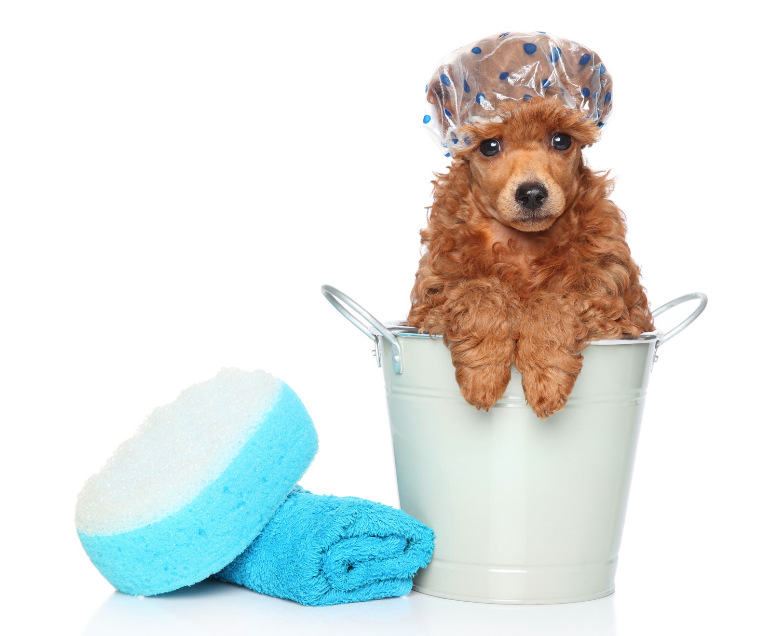
Also, if you work outside of the house, we highly recommend a Furbo Dog Camera. It allows you to see, talk and toss treats to your dog from anywhere. This way you can monitor how much paw licking your dog does while you’re not home. You can also speak to your dog if you see her licking so you can distract her.
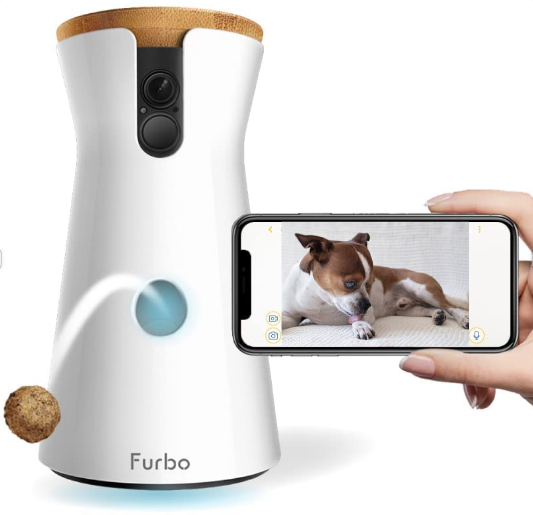
1. A warm-water oatmeal bath
A warm water oatmeal bath allows the natural oils in the oatmeal to moisturize dry, cracked paw pads and lessen the inflammation causing the constant itching. Just dissolve a couple of cups of ground oats (the unflavored, unsweetened variety) in warm water in your bathtub and allow your pup to stand or lie in the solution for 10 minutes or so.
2. Warm water and iodine
Warm water and iodine in your dog’s bath gets rid of any allergens or toxins on her feet and between her paw pads, disinfects any wounds she may have, and will treat any ongoing yeast infection caused by constant licking or chewing. Add just enough iodine in the water to turn it the color of iced tea, then stand your pet in the solution for 30 seconds. Pat the paws dry with a clean towel and your pup is good to go. Don’t worry if she licks her paws after, iodine is non-toxic for dogs.
3. Baking soda
Baking soda in a bucket of warm water removes those allergens causing all the itch and soothes inflamed and irritated skin. Dunk your dog’s feet in the bucket when you come in from outside and let him sit there for a minute or two, and the licking and chewing should stop. Just 1- or 2-tablespoons of baking soda per gallon of water is enough to lessen the itchiness.
4. Warm water & organic, unpasteurized apple cider vinegar, and hydrogen peroxide
A combination of warm water, organic, unpasteurized apple cider vinegar, and hydrogen peroxide works to treat yeast infections and sooth irritated paws with its anti-bacterial, anti-fungal, and anti-viral properties. To make this solution, pour 1 cup of organic apple cider vinegar (must be the”with The mother” type) and 1 cup of hydrogen peroxide into 1 gallon of warm water. Soak your dog’s paws in the liquid for 30 seconds and allow the skin to air-dry.
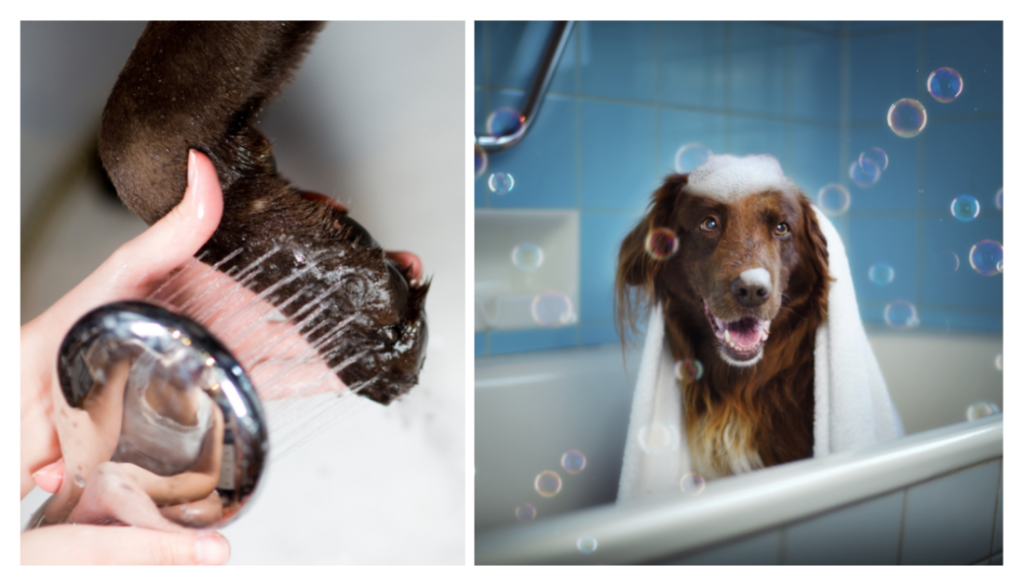
5. Warm water, organic, unpasteurized apple cider vinegar, lemon juice, and peppermint essential oil
A variation of that home remedy mixes warm water, organic, unpasteurized apple cider vinegar, lemon juice, and peppermint essential oil helps easing skin irritations and add a cooling effect to inflamed skin. You’ll need to combine 1 gallon of water with 1 cup of the organic apple cider vinegar, the fresh juice of one whole lemon, and 20 drops of peppermint essential oil. After soaking your dog’s paws in the mixture for 30 seconds, pat them dry and allow the slightly anesthetic properties of the peppermint oil to go to work.
6. All-natural herbal teas
All-natural herbal teas including chamomile, sage, echinacea golden seal and decaffeinated green tea, when added to either of your dog’s bath water/apple cider vinegar solutions, works as a healing medicine. The teas’ mild astringents help heal any sores or wounds, and their anti-oxidant and anti-inflammatory properties help stop the itching. Just add a few tea bags to your warm water solution and allow the teas to steep. You can also just prepare the teas as you normally would for drinking, allow them to cool down, then add to the water/vinegar solution. Place your dog’s paws in the remedy for 30 seconds, then allow to air-dry.
7. Epsom salts
Epsom Salts (1 cup per gallon of water) dissolved in a warm water bath contain the potassium, nitrates, and chloride that helps restore your dog’s natural bacterial balance on the skin of her paws. The salts raise your pet’s natural pH level, which helps to kill off the “bad” bacteria causing any inflammation or itching, and regenerate the “good” bacteria that keeps her skin and coat healthy. She needs to stand quietly in the Epsom salts for around 10 minutes for the treatment to be effective.
Remember: Never rinse your dog’s feet after any of these footbaths because the healing properties of each solution need to remain on the skin and hair to do their best work.
No time to make a foot bath?
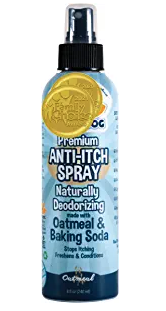
If making your own doggy foot bath is not something you want — or have time — to do, try a ready made spray that contains many of the same ingredients recommended in the foot baths but already mixed and ready to go in an easy spray bottle.
Look for a combination of all-natural products that moisturize and protect your pup’s sensitive skin and paw pads, that target those specific inflamed and itching areas, and that allow your sensitive dog to feel relaxed and calm.
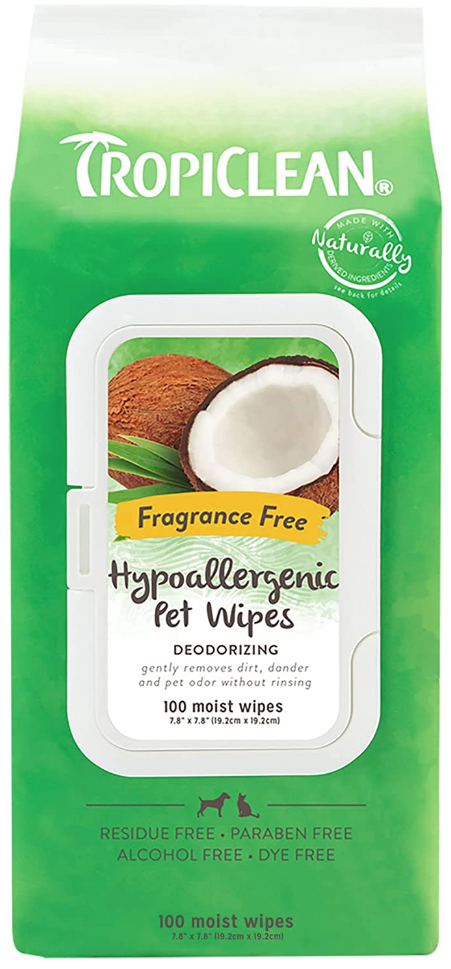
You can also try paw wipes. Be sure to get ones that are big enough to wipe your dog’s paws and that contain soothing ingredients.
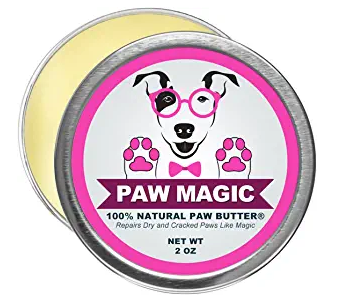
We absolutely LOVE this Allergy & Itch Balm that’s jam packed with ingredients to help minor to incessant skin irritations, including itchy paws. Learn more about this amazing product here.
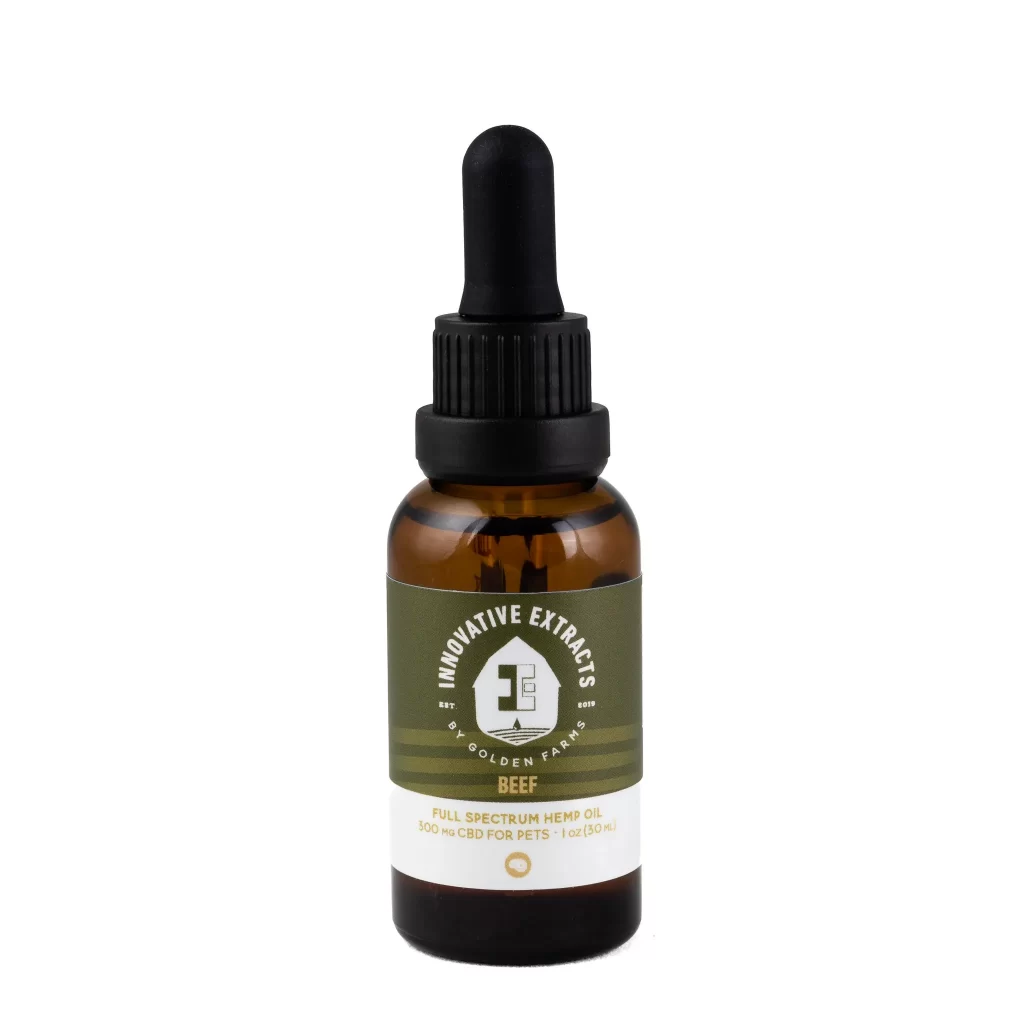
CBD oil has had promising results for many dogs, when it comes to allergies, and hot spots. We have tried many and always come back to this one from Innovative Extracts.
These natural remedies and products to help your allergic dog saves on expensive clinic visits and pricey steroids recommended most veterinarians.
Please Note: See your veterinarian if, at any time, you notice open wounds or sores on your dog’s paws, as she may need an antibiotic to prevent infection.




